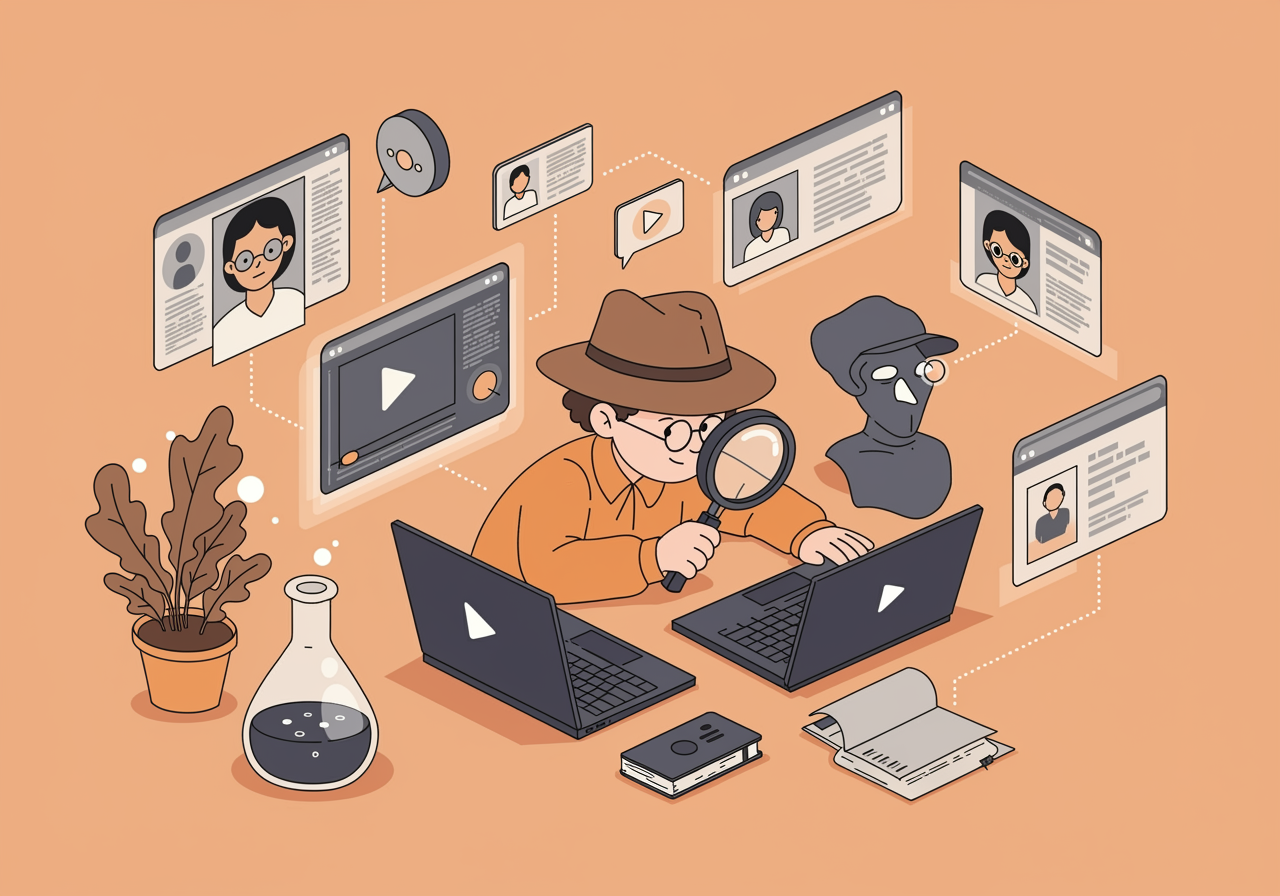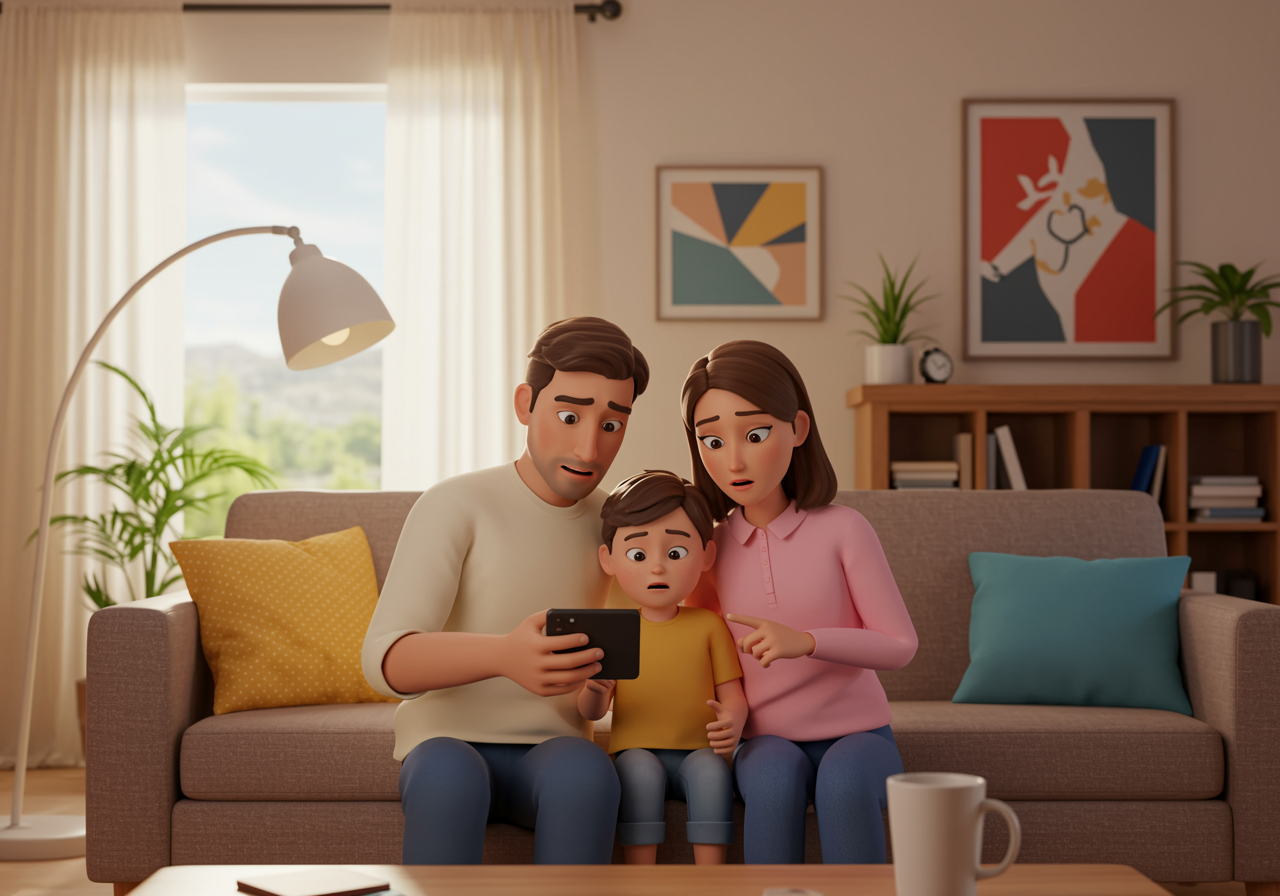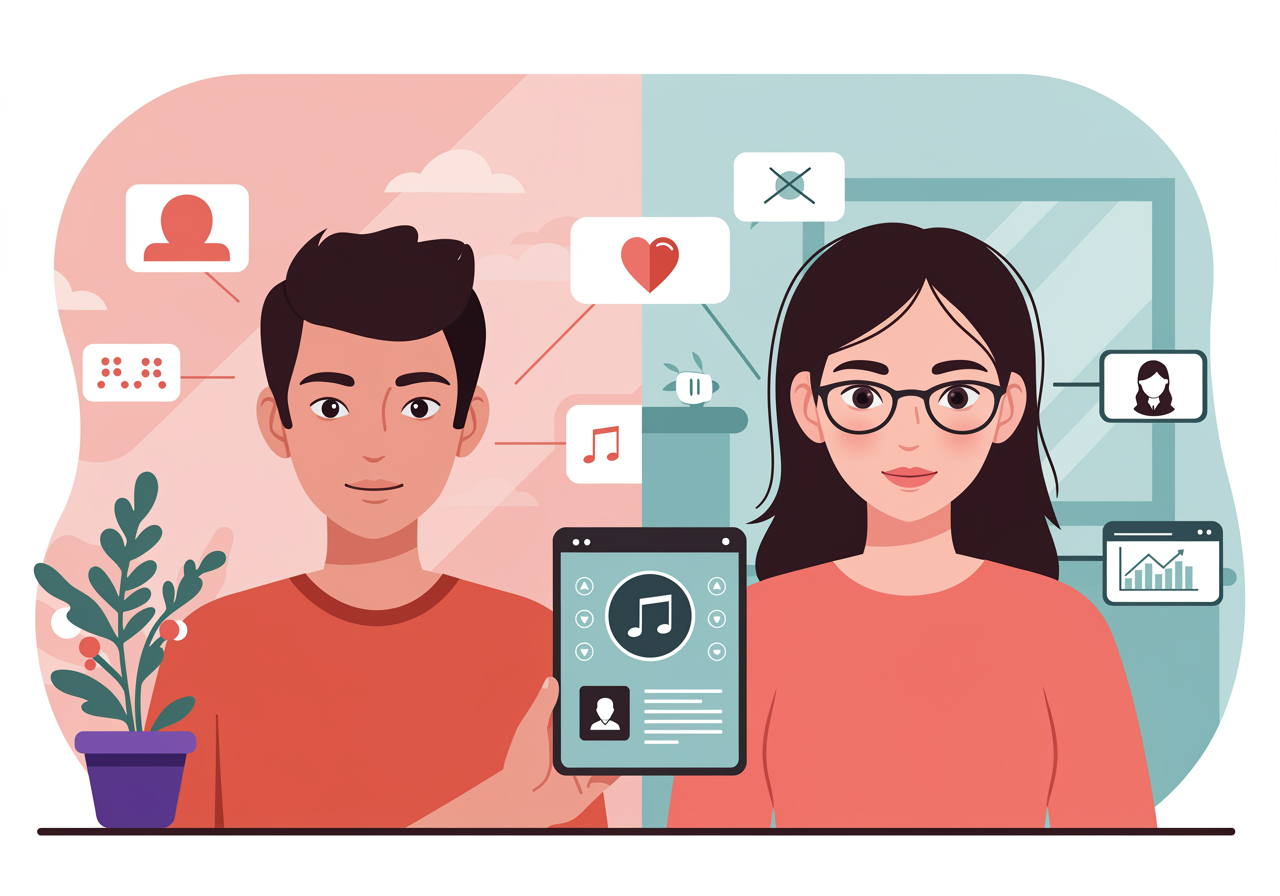When Videos Lie: How AI is Changing What We Can Believe
Teaching kids to be video detectives in the age of deepfakes
Discover how AI can create incredibly realistic fake videos and learn fun ways to help your child become a savvy digital detective.
Overview
Your child probably watches dozens of videos every day – from TikToks to YouTube tutorials to news clips. But what if some of those videos aren't real? AI technology can now create videos that look completely real but show things that never actually happened. This isn't just movie magic anymore – it's happening right now, and it's getting harder to tell what's real and what's fake. Teaching kids to question what they see online isn't about making them paranoid, it's about giving them superpowers to think critically in our digital world.

Understand in 30 Seconds
Get up to speed quickly
- AI Can Make Fake Videos Look Real: Computer programs can now put anyone's face on anyone else's body in videos, or make people appear to say things they never actually said.
- It's Called 'Deepfake' Technology: These ultra-realistic fake videos are created using artificial intelligence that learns from thousands of real photos and videos.
- It's Getting Easier to Make: What used to require Hollywood-level special effects can now be done on a regular computer, sometimes in just a few hours.
- Critical Thinking is Our Best Defense: Learning to question videos, check sources, and look for clues helps us stay smart about what we believe online.
Real Life Scenario
Situations you can relate to
Imagine you're watching your favorite celebrity on social media, and they're saying something really shocking or weird that doesn't sound like them at all. Your first thought might be 'Wow, I can't believe they said that!' But what if they never actually said it? Think about magic shows – the magician makes it look like they're sawing someone in half, but we know it's not real because it's a magic trick. AI video editing is like digital magic, except it's designed to fool us completely. The 'magician' uses computer programs to put one person's face perfectly onto another person's body, or make someone's mouth move to say words they never spoke. Unlike a magic show where we know to expect tricks, these AI videos are meant to look totally real. So how do we become detectives? We ask questions like: Does this person usually talk this way? Where did this video come from? Does anything look a little 'off' about their face or voice?

Role Play
Spark a conversation with “what if” scenarios
What if you saw a video of your school principal announcing that school was cancelled forever?
- Role play: Practice being a detective together – ask questions like 'Who posted this?' 'Does the principal usually make announcements this way?' and 'What would we do to double-check this news?'
What if a video showed your favorite athlete saying they were quitting their sport to become a professional juggler?
- Role play: Play 'Real or Fake?' by looking for clues – does their voice sound normal? Do their facial expressions match their words? Where else could you check this news?
What if you received a video message that looked like it was from a family member asking for money?
- Role play: Role-play how to verify it's really them – what questions would you ask? How could you double-check? Practice the rule of 'when in doubt, call them directly.'
FAQs
Frequently asked questions people want to know
How can I tell if a video is made by AI?
Look for small signs like unnatural blinking, weird shadows around the face, or audio that doesn't quite match lip movements. But remember, AI is getting better, so the best strategy is always to check multiple sources.
Is all AI video editing bad?
Not at all! AI helps create amazing movie effects, fun social media filters, and even helps people with disabilities communicate better. The problem comes when it's used to trick people or spread false information.
What should I do if I think I've seen a deepfake?
Don't share it until you've checked other reliable sources. Look up the person or event on trusted news sites, and remember that if something seems too shocking or weird to be true, it might not be.
Examples in the Wild
See how this works day to day
- In 2023, a deepfake video of Elon Musk promoting a fake cryptocurrency scam circulated on social media, tricking thousands of people (BBC Technology News)
- Deepfake videos of celebrities were used in political campaigns in several countries during 2022-2023 elections (Reuters Fact Check)
- TikTok and Instagram have added labels and detection tools to identify AI-generated content on their platforms (TechCrunch)
- Voice deepfakes have been used in phone scams where criminals impersonate family members asking for emergency money (Federal Trade Commission)
In Summary
What you should know before you start
- AI can create incredibly realistic fake videos that are getting harder to spot with the naked eye
- Teaching kids to question what they see online builds critical thinking skills for the digital age
- The best defense is checking multiple sources and asking 'Does this make sense?' before believing or sharing
- AI video technology isn't inherently bad – it's how it's used that matters
Pro-tip for Parents
You got this!
When your child shows you a 'crazy' video they found online, resist the urge to immediately say 'that's fake.' Instead, turn it into a fun detective game. Ask them what they notice about the video and guide them to ask their own questions. This builds their critical thinking muscles without making them feel silly for initially believing something. Remember, even adults get fooled by sophisticated deepfakes, so approach this as a learning adventure you're both on together.

Keep an Eye Out For
Find these examples in everyday life
- News stories about deepfakes or AI-generated content – these make great conversation starters
- When your child shows you a surprising or shocking video from social media
- Political campaign seasons when misleading videos tend to circulate more frequently
- New AI tools and apps that create or modify videos becoming popular among teens
Explore Beyond
Look up these related research topics
- How algorithms decide what videos we see on social media platforms
- The difference between correlation and causation in online information
- How to fact-check news and information found online
- Understanding bias in media and how it affects what stories get told